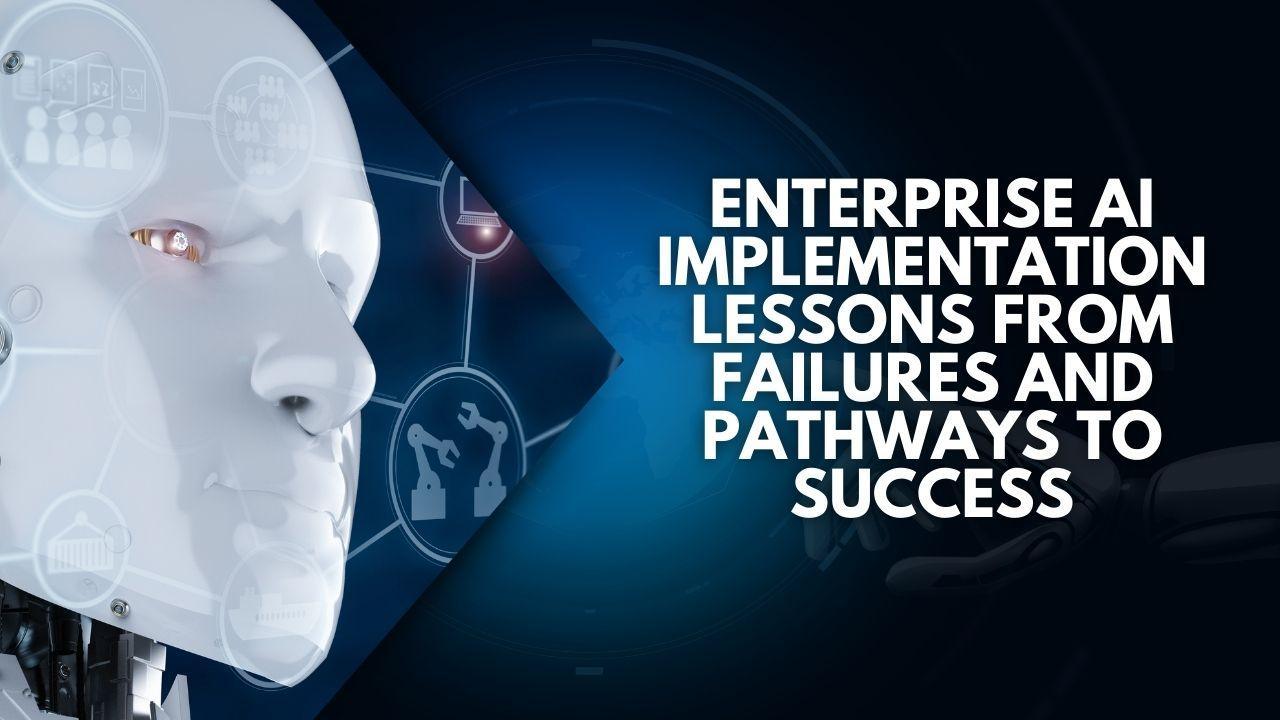In this modern era, the adoption of Artificial Intelligence (AI) in enterprises has surged, offering transformative potential for operational efficiency, customer engagement, and decision-making. As businesses increasingly rely on AI to gain a competitive edge, its implementation comes with complexities that require strategic planning. Vinay Kumar Ankusarao, an expert in AI-driven digital transformation, examines the challenges faced in enterprise AI implementation and provides insights into strategies that enhance success rates. As AI technology evolves, understanding common pitfalls and best practices is essential for organizations embarking on AI-driven initiatives.
The Rapid Expansion of Enterprise AI
The enterprise AI market has experienced remarkable growth, with organizations increasingly leveraging AI to optimize operations and enhance decision-making. AI-driven solutions in customer success, predictive analytics, and process automation have improved efficiency and created new value streams. However, nearly 82% of AI projects fail to deliver their intended value due to issues related to data quality, integration, and scalability. As businesses continue adopting AI, structured implementation approaches and robust strategies are more critical than ever.
Challenges in AI Implementation
Enterprise AI implementations often face hurdles that hinder success. Poor data quality, inconsistent formats, and incomplete datasets can reduce model accuracy. Additionally, integrating AI with existing IT infrastructure can be complex, as legacy systems may not be designed for AI-driven workloads. Scalability is another concern, requiring continuous optimization to handle growing data while maintaining performance. Organizations that overlook these challenges risk inefficient deployments and lower return on investment.
The Role of Data Quality in AI Success
High-quality data is the foundation of any successful AI initiative. Organizations must ensure their data is accurate, structured, and complete. Poor data quality can lead to unreliable predictions and suboptimal decisions. Implementing governance frameworks, real-time validation, and automated cleaning enhances AI performance. Data preprocessing, anomaly detection, and real-time monitoring further strengthen AI capabilities, ensuring long-term success in AI-driven operations.
Overcoming Integration Challenges
Integrating AI into enterprise environments requires a structured approach. Standardized APIs, middleware solutions, and cloud-based architectures facilitate smoother integration. Organizations should also focus on real-time data synchronization to prevent inconsistencies. AI projects that prioritize integration planning from the outset are more likely to succeed. Adopting microservices-based AI architectures enhances flexibility and simplifies complex system interactions, enabling faster AI deployment.
Scalability and Performance Optimization
AI models must be designed for scalability to accommodate increasing data volumes and user demands. Implementing cloud-native AI architectures, distributed computing frameworks, and automated scaling mechanisms helps enterprises maintain performance. Performance monitoring tools that detect inefficiencies and recommend optimizations further enhance AI system reliability. Additionally, edge AI processing reduces latency, improves response times, and enhances performance across distributed networks, particularly in real-time applications.
AI Governance and Compliance
As AI adoption grows, regulatory compliance and governance become critical. Organizations must ensure AI systems adhere to ethical guidelines, data privacy regulations, and industry standards. Establishing governance policies, incorporating transparency in decision-making, and implementing automated compliance checks help mitigate risks. Explainable AI (XAI) techniques improve trust and accountability by making AI-driven decisions more interpretable, aligning AI strategies with business and ethical considerations.
The Future of Enterprise AI
The evolution of AI in enterprises is set to accelerate, driven by advancements in machine learning, federated learning, and AI-powered automation. Future AI implementations will focus on adaptability, minimizing biases, and enhancing interpretability. Organizations that refine AI strategies, invest in robust data management, and foster collaboration between AI teams and business stakeholders will achieve long-term success. AI-driven automation will play a crucial role in optimizing workflows, reducing operational costs, and enabling real-time decision-making at scale.
In conclusion, AI has the potential to revolutionize enterprises, but its success requires careful planning, high-quality data, seamless integration, and scalable architectures. Addressing challenges related to data governance, system interoperability, and performance optimization is key to maximizing AI’s impact. As AI continues to evolve, organizations must refine strategies, embrace continuous improvements, and adopt best practices for AI scalability, security, and compliance. Leveraging AI-driven insights and automation can further enhance operational efficiency and decision-making. Vinay Kumar Ankusarao’s insights highlight the importance of a strategic approach to enterprise AI adoption, ensuring organizations achieve efficiency, innovation, and sustainable competitive advantages in the digital era.



































